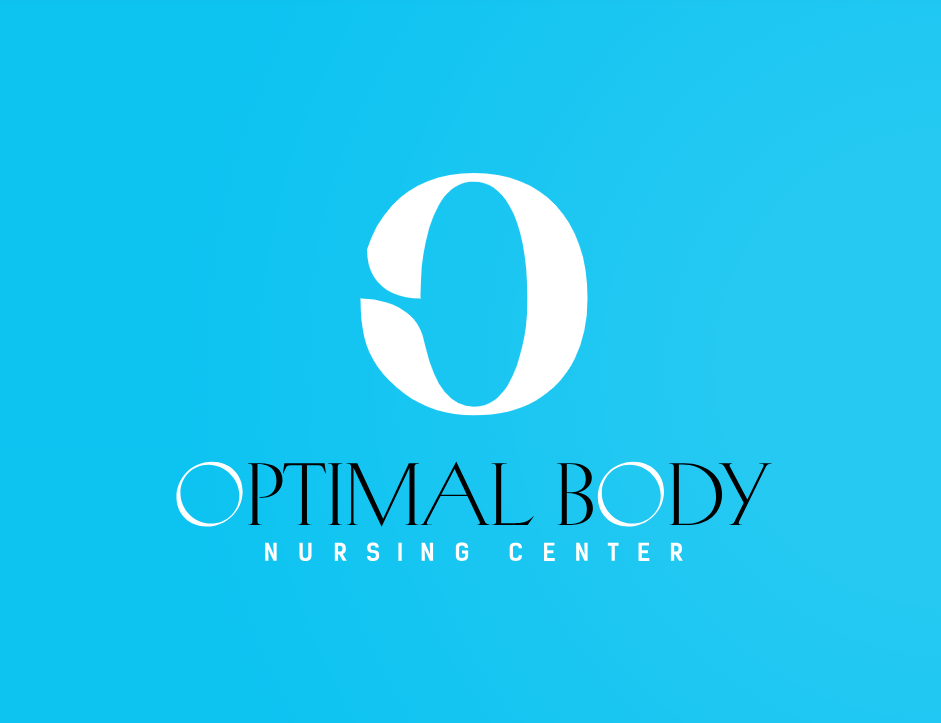
Weight loss treatment is a common goal for many individuals aiming to improve their health, boost energy levels, and increase self-confidence. Maintaining a healthy weight is a major challenge for millions worldwide. Sedentary lifestyles, processed diets, hormonal imbalances, and genetic predispositions all contribute to gradual weight gain. While many seek rapid results through fad diets or extreme workouts, these approaches rarely yield sustainable outcomes and may even compromise health.
Vitamins and minerals are essential for hormone production and metabolic function. Deficiencies caused by stress, aging, or poor diet can lead to fatigue, cravings, mood swings, and stubborn weight gain.
During life stages like menopause or andropause, hormonal shifts make it even more difficult to manage weight. Women may face bloating or poor sleep, while men may see reduced muscle mass and energy. Quality supplements can support natural hormone levels and improve your body’s response to treatment.
With guidance from a medical professional, supplement plans can be safely tailored to your hormonal needs. When part of a personalized weight loss treatment, the right vitamins can support hormone balance, improve metabolism, and enhance overall results.
Understanding Hormonal Imbalance and Its Impact on Weight
Hormones are the body’s chemical messengers. They orchestrate metabolism, appetite, fat storage, energy levels, and more. When hormones deviate from optimal levels, the body’s metabolic machinery becomes less efficient meaning you burn fewer calories, store more fat, feel sluggish, and face stronger cravings.
The Key Hormones in Weight Regulation
- Estrogen & Progesterone
In women, these reproductive hormones influence where fat is stored (hips, thighs, abdomen), regulate appetite, and affect fluid retention. As estrogen declines during perimenopause and menopause, many women experience increased central fat (belly fat), slower metabolism, and more insulin resistance. - Testosterone
Though commonly associated with men; testosterone is crucial in both sexes. It supports lean muscle tissue, which in turn burns more calories even at rest. Lower testosterone levels (common in aging men, and to some extent in women) lead to reduced muscle mass, more fat accumulation, decreased basal metabolic rate, and lower energy. - Cortisol
Known as the “stress hormone,” cortisol is essential for survival in short bursts. But chronically elevated cortisol (from ongoing stress, poor sleep, or overtraining) triggers fat storage especially in the abdomen suppresses fat burning, impairs insulin sensitivity, and may increase appetite for high-carb, high-fat “comfort” foods. - Insulin & Thyroid Hormones
Insulin regulates blood sugar and directs whether nutrients are stored or burned. Frequent blood sugar spikes and insulin resistance push the body into a fat-storing mode.
Thyroid hormones (T3, T4) act like a metabolic accelerator. When thyroid levels drop (hypothyroid conditions) or conversion is impaired, metabolism slows dramatically, making weight loss much harder.
How Imbalances Manifest in Body Weight
- Sluggish metabolism fewer calories burned at rest
- Increased fat accumulation especially around the midsection
- Muscle loss or difficulty building muscle
- Cravings and hunger fluctuations, particularly for carbs and sugars
- Fatigue and low energy, making consistency in movement harder
- Mood swings, sleep disruption, and other systemic effects
Hormone Therapy & Weight Loss Treatment: The Interplay
When someone undergoes a clinically supervised weight loss treatment, hormonal imbalance is often addressed simultaneously. For instance:
- A client with low thyroid or subclinical hypothyroidism might not respond well to diet/exercise alone unless thyroid levels are optimized.
- Clients with insulin resistance or PCOS may need adjustments in insulin management, diet, and supportive nutrients to improve fat-burning.
- In male patients, restoring testosterone (if deficient) can facilitate muscle building, improve energy, assist in fat loss, and enhance mood.
- Women in perimenopause or menopause often benefit from balancing estrogen/progesterone (or managing their decline) to reduce symptoms and support better metabolic function.
Hence, hormone optimization becomes a foundational pillar of any thorough metabolic or weight-cantered plan. When hormones are in balance, other interventions nutrition, training, supplementation tend to work more predictably and effectively.
Role of Vitamins and Nutrients in Hormone Regulation
Understanding which micronutrients support hormonal health is critical, because even if hormone therapy is involved, the body still needs the raw materials to carry out synthesis, conversion, and signalling.
Top Vitamins and Nutrients for Hormonal Support
- Vitamin D
It acts more like a hormone than a vitamin in many respects. Adequate Vitamin D supports production and activity of sex hormones (estrogen, testosterone) and correlates with better insulin sensitivity. Many adults are deficient, especially in low-sunlight regions. - B-Complex Vitamins (especially B6, B12, Folate)
These are central to energy metabolism, methylation processes (which affect hormone conversion), adrenal function, and neurotransmitter balance. In low B-vitamin states, stress response and hormonal equilibrium suffer. - Magnesium
Magnesium is involved in hundreds of biochemical reactions, including those that regulate cortisol, support thyroid function, and help with insulin signalling. It also aids in sleep, which is deeply tied to hormonal recovery. - Zinc
Essential for testosterone synthesis and for modulating estrogen activity. Deficiency can blunt hormonal balance, impair immunity, and compromise reproductive health. - Omega-3 Fatty Acids (EPA, DHA)
These anti-inflammatory fats support hormone receptor function, cell membrane integrity, and brain signalling all of which influence hormonal balance. They also help reduce chronic inflammation, which disrupts insulin, cortisol, and thyroid pathways. - Adaptogenic Herbs (e.g., Ashwagandha, Maca)
While technically not vitamins, adaptogens help the body manage stress and regulate adrenal output. They can blunt excessive cortisol response, support hormonal resilience, and attenuate fatigue associated with hormonal shifts.
The Cost of Deficiency
A person lacking sufficient levels of these nutrients may experience:
- Worsening of fatigue, mood swings, or anxiety
- Sluggish thyroid conversion (T4 → active T3)
- Amplified stress hormone (cortisol) burden
- Impaired insulin sensitivity
- Slowed weight loss or even weight gain despite good effort
For that reason, a carefully designed supplementation plan (paired with food) ensures the endocrine system has all building blocks needed to function optimally.
How to Choose High-Quality Supplements
Supplement quality matters just as much as the nutrient itself. A weak or impure product won’t deliver, and in some cases might cause harm.
Criteria for a High-Quality Supplement
- Third-Party Testing: Look for verification seals (e.g. USP, NSF, Informed Choice) to confirm that what’s on the label is in the bottle.
- GMP Certification: Good Manufacturing Practices ensure consistency, purity, and safety across production.
- Transparent Labelling: Ingredients (active and inactive), dosages of each, and source (e.g. magnesium citrate vs oxide) should be clear. Avoid products hiding amounts in “proprietary blends.”
- Bioavailable Forms: Choose forms the body can absorb and use, e.g. magnesium glycinate, methylated B-vitamins, zinc bisglycinate, omega-3 triglyceride form, etc.
- Minimal Excipients, Fillers & Additives: The cleaner the formula, the less risk for allergies, interference, or toxicity.
Warning Signs & Red Flags
- Claims like cure all, detox your hormones overnight, or secret formula
- Extremely large doses far above typical clinical ranges without explanation
- Hidden amounts in proprietary blends
- Lack of disclosure about testing or sourcing
Professional Oversight is Essential
Supplements interact with medications, hormone therapies, and physiological states. That’s why consultation with a menopause specialist is important before beginning any regimen. They can:
- Review labs and symptoms
- Adjust dosage appropriately
- Monitor for side effects or interactions
- Ensure the supplement plan complements, not conflicts with, your hormone protocol
Personalized Supplementation: Why One-Size Doesn’t Fit All
Your friend’s vitamin stack might have helped them but that doesn’t mean it will work for you. Hormones, health history, age, sex, and medications all alter what you need.
Key Variables That Affect Supplement Needs
- Age: nutrient absorption declines
- Sex and reproductive stage: menopause, perimenopause, andropause
- Existing conditions: thyroid disease, PCOS, adrenal dysfunction, insulin resistance
- Current medications: some drugs deplete nutrients or interact
- Lifestyle factors: stress, sleep patterns, diet quality
Lab Testing as Foundation
Before starting, a proper hormone panel and nutrient assessment help identify what is low, optimal, or excessive. This may include:
- Serum Vitamin D
- Magnesium, zinc
- B12, folate
- Sex hormones (estradiol, progesterone, testosterone)
- Thyroid panel
- Cortisol/saliva/adrenal panels
- Insulin / glucose / HOMA-IR
Sample Illustrative Cases
- A woman entering menopause may need Vit D and magnesium and adaptogens to support mood, sleep, and metabolic rate.
- A man with low testosterone might benefit from zinc and omega-3 and B12 in addition to hormone replacement.
- Someone with insulin resistance and low magnesium could see better glucose control when magnesium and omega-3 are optimized.
Personalization ensures you get the right mix not too little, not too much minimizing waste, side effects, and costly trial-and-error.
Integration of Supplements into a Broader Wellness Plan
Vitamins and minerals can help but they are not magic. Their benefits flourish when combined with a full-spectrum wellness approach.
Nutrition & Diet
A principle used in many advanced weight programs: supplements supplement, not replace, food. Ensure:
- Adequate protein (supports muscle, satiety, hormonal balance)
- Healthy fats (support steroid hormone synthesis)
- Fiber, vegetables, antioxidants (support detoxification, gut health)
- Controlled, balanced macronutrient distribution
- Avoid processed sugars & refined carbs that spike insulin
This philosophy is central to many structured weight loss programs where diet is tailored to your metabolism.
Exercise / Movement
Resistance training preserves and builds muscle (boosting basal metabolism), while cardio and HIIT support overall calorie burn and cardiovascular health. Hormones like testosterone and growth hormone respond well to progressive resistance protocols.
Stress Management & Sleep
Since cortisol is a major disruptor of hormonal balance:
- Prioritize quality sleep (7–9 hours)
- Incorporate stress-relief techniques (meditation, breathing, yoga)
- Avoid chronic overtraining
Advanced Therapies & Synergies
In some holistic, medically guided wellness programs, non-invasive treatments like body sculpting near me are used in tandem. These can help:
- Target stubborn fat deposits
- Improve body contour
- Boost confidence and adherence
But these therapies work best when hormonal and metabolic systems are already supported, they complement, not replace, internal balance.
Dangers of Relying Solely on Supplements
- Plateaus despite doing everything right
- Nutrient overdose or imbalance
- Ignoring root causes (sleep, stress, diet)
- False sense of safety skipping medical oversight
A multidimensional plan is the only sustainable path.
Professional Guidance: Who Should You Work With?
Because hormone and supplement interactions are complex, it’s critical to partner with qualified clinicians and wellness professionals.
When to Seek Specialist Help
If you experience symptoms such as:
- Persistent weight gain or inability to lose
- Fatigue, mood swings
- Irregular cycles, menopause symptoms
- Low libido, erectile issues
- Thyroid or metabolic dysfunction
Then consult a menopause specialist (for women) or a testosterone specialist near me (for men). These experts have deep training in hormone balancing, and understand subtle interactions with vitamins, herbs, and medications.
Complementary Practitioners
- Functional Medicine / Integrative Medicine Clinicians: Evaluate root causes across gut, adrenal, detox, and metabolic axes.
- Registered Dietitians or Nutrition Coaches: Translate lab-based supplement plans into realistic meal strategies.
- Exercise Physiologists / Trainers: Build a movement regime that supports hormonal health.
- Health Coaches: Aid in behavioural change, accountability, and habit formation.
What to Expect in a Supplement Consultation
- Review of full medical history and current medications
- Assessment of symptoms and lifestyle
- Lab test review and interpretation
- Design of a personalized supplement plan (what, how much, when)
- Scheduled follow-ups and lab retesting to adjust as needed
This guidance ensures your plan is safe, evidence-informed, and aligned with your hormonal goals.
Frequently Asked Questions
Can I start hormone-balancing supplements without testing?
Tempting, but risky. Testing ensures you identify what’s needed and avoid unnecessary overload.
Are over-the-counter supplements enough?
OTC products vary widely in quality. Clinical-grade, third-party tested formulas prescribed by clinicians are usually safer and more effective.
How long does it take to see results?
Some will feel improvements in mood, energy, or sleep within weeks. Hormonal balance and measurable weight changes may require 3 to 6 months (or more), depending on baseline state.
What are signs I’m taking the wrong vitamins?
Unexpected side effects like headaches, digestive upset, insomnia, or hormone-related symptoms (e.g. mood swings) warrant re-evaluation.
Do supplements interfere with hormone therapy or medications?
Yes, they can. Always provide your full supplement list to your clinician to avoid interactions or conflicting effects.
Final Thoughts
Hormonal support is a critical component of a truly effective. Selecting high-quality vitamins and nutrients isn’t about taking more pills it’s about giving your body exactly what it needs to restore balance, optimize metabolism, and function at its best.
A comprehensive approach that combines nutrition, movement, stress management, and targeted therapies in conjunction with expert oversight from a menopause specialist or testosterone specialist near me is the path to sustainable transformation.
If you’re ready to begin a personalized journey toward hormonal balance, metabolic resilience, and weight control contact us today to get started.


